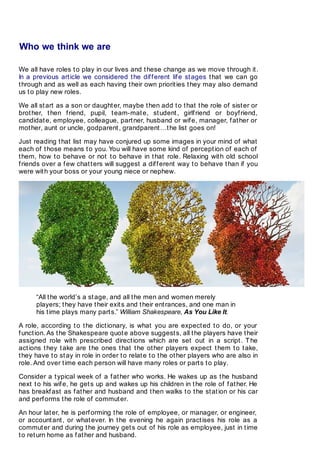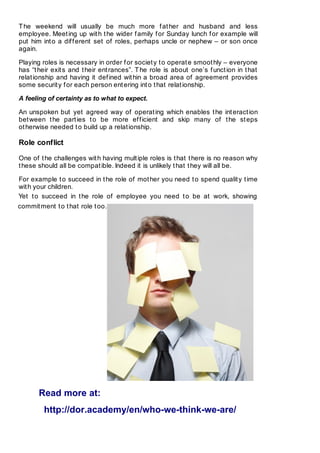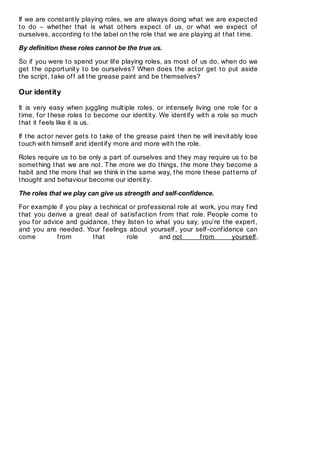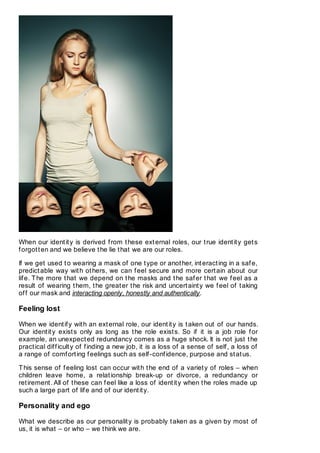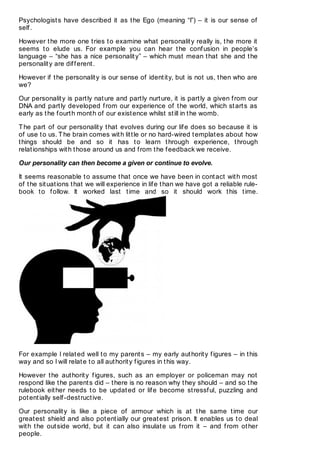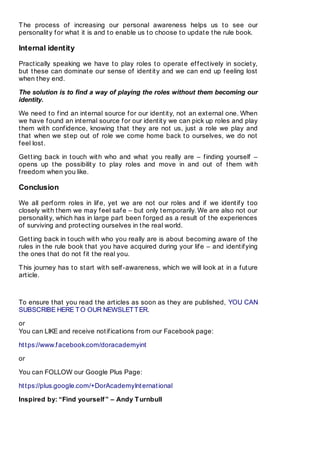The document discusses the various roles individuals play throughout their lives and how these roles can influence identity and self-perception. It highlights the challenges of role conflict and the danger of equating one's identity with external roles, leading to feelings of loss when these roles change or disappear. Ultimately, it emphasizes the importance of finding an internal source of identity rather than relying solely on external roles to achieve a true sense of self.
